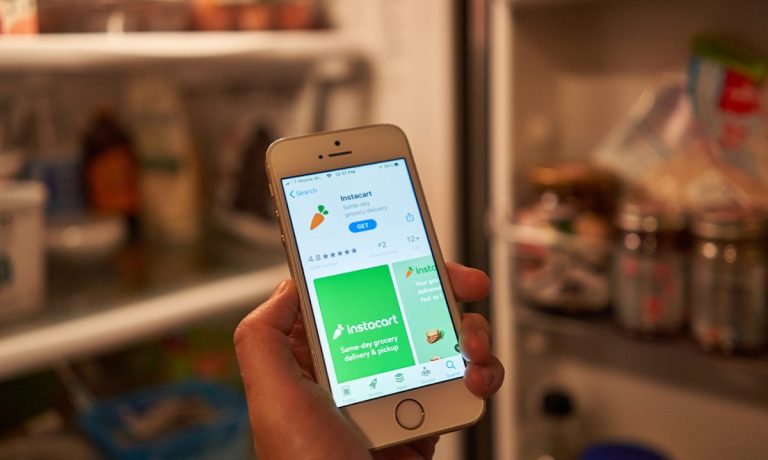Instacart’s Reported Entry Into Ultrafast Delivery Could Be Devastating to Newer Startups

The crowded ultrafast grocery delivery space could be poised to get cleared out in one fell swoop. Insiders report that Instacart is looking to launch its own 15-minute delivery service, according to The Information, working with a delivery provider that has existing relationships with many of the grocers already on Instacart’s marketplace. The company plans to launch its first trial of the service in February.
Following the widespread adoption of online grocery in 2020, the 15-minute grocery space has been growing rapidly throughout 2021. Today, New York City gives a sense of what the competitive marketplace would look like down the line if Instacart were not planning to enter the space, with services including Jokr, Gorillas, Buyk and 1520 competing for the city’s online grocery shoppers.
In a recent interview with Karen Webster, Tyler Trerotola, Jokr’s U.S. co-founder, argued that Jokr does not need to be concerned about competition yet, since the market remains underpenetrated. “[Online grocery] is maybe around 10% [of the grocery market], and probably in the next three to five years, that will double or even triple, which gives a huge opportunity to many players,” he said. “Now, it will be a bit of a race as to who can capture that demand.”
However, with the entry of Instacart, whose valuation is an order of magnitude larger than its closest competitors in the space, and which has existing relationships with over 65,000 stores — reaching 85% of American households and 90% in Canada — the entry of the online grocery startup could be devastating to others in the space.
In an interview with PYMNTS, Buyk Co-founder Slava Bocharov predicted that the number of players in the space is going to winnow down dramatically within the next year or two. “The current situation is unsustainable and largely subsidized by a huge amount of capital investment,” he explained. “Eventually, as it becomes clear that certain smaller services are financially untenable, this investment will dry up and the initial investors will seek some form of return. At this point, they are likely to be acquired by the two or three dominant players.”
The businesses that could suffer most as a result of Instacart’s entry into the space are the small, local corner stores whose value prop is convenience. In New York, reports have already surfaced of bodegas feeling the impact of the entrance of these newcomers on their sales, and without the hundreds of millions in venture capital that the ultrafast delivery services have at their disposal, many bodegas now fear they will be put out of business.
Also see: Struggling NYC Bodegas Seek City Funding for Tech, Delivery Apps
Findings from PYMNTS’ study “What Consumers Expect From Their Grocery Shopping Experiences,” created in collaboration with ACI Worldwide — which featured a census-balanced survey of more than 2,300 U.S. adults — indicated that 34% of grocery shoppers now buy online, and 18% of consumers prefer these eCommerce options to in-store shopping. More specifically, the study found that 23% of consumers order groceries online for delivery, and 11% use aggregators that deliver products the same day.
You may also like: Digital Features Can Help Grocers Win Over 43% of Shoppers
Top of mind for these online grocery shoppers are speed and convenience. Seventy-six percent reported opting for digital channels because they are easier and more convenient, and 57% because it is faster to purchase online.Instacart’s Reported Entry Into Ultrafast Delivery Could Be Devastating to Newer Startups